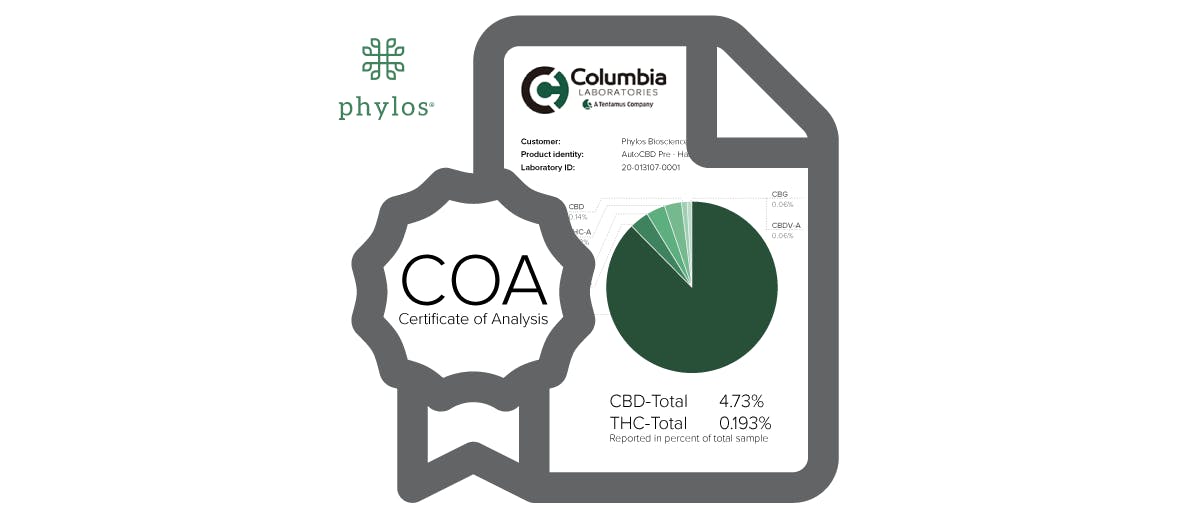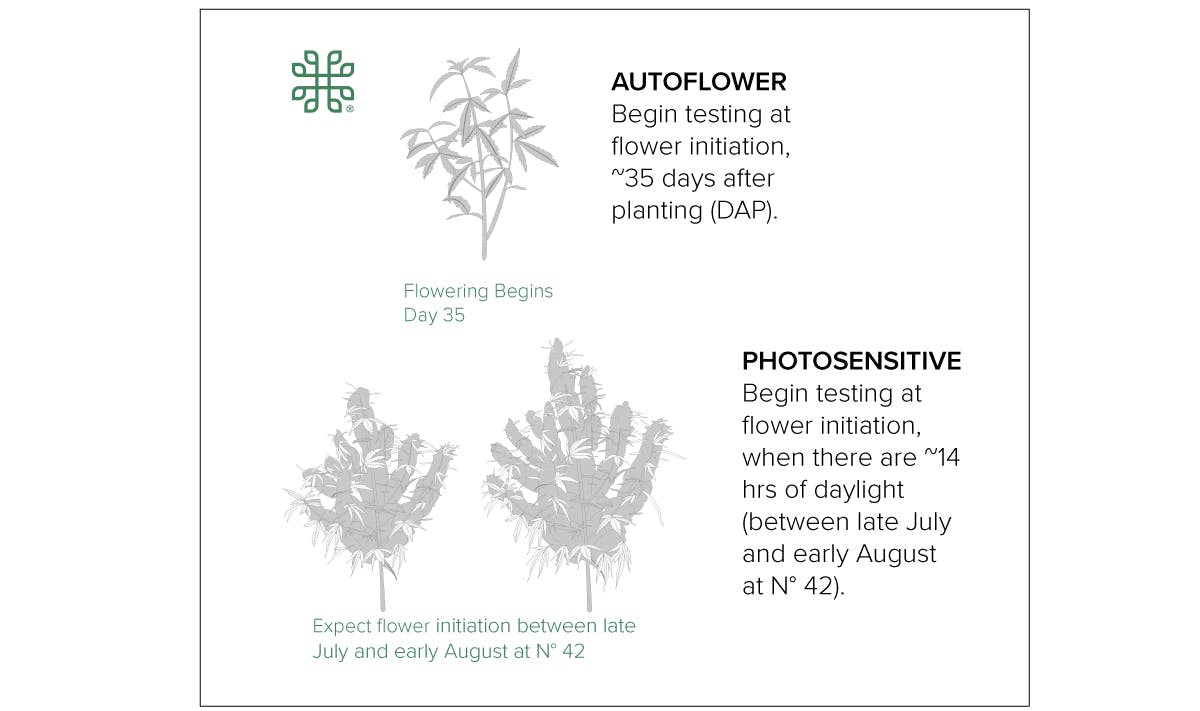Toto, I’ve a feeling we’re not growing corn anymore. –Hemp Grower
When it comes to growing hemp, legal compliance isn’t the most fun topic, but we need to be clear when we talk about it.
For hemp growers, everything hinges on compliance. If your crop tests “hot” (above 0.3% total THC and not within a distribution range of uncertainty), you don’t get back all the time, labor, and resources you invested in your crop—and you typically foot the bill for its destruction.
At the end of the day, the law is yours to learn. It’s important to contact your State Department of Agriculture to first understand the local rules regarding testing and harvest windows. If you know your state rules and follow our testing recommendations you’re better positioned for success, period.
Let’s start with some basics.

Certificate of Analysis (COA) illustration
What is a Certificate of Analysis (COA)?
A Certificate of Analysis, or COA, is a document issued by an accredited laboratory that shows a point-in-time analysis of the composition of any hemp and cannabis sample. It can include a total list of cannabinoids, terpenes, and possible contaminants such as pesticides, solvent residue, or heavy metals.
Why are COAs important?
Every hemp grower needs a legal state compliance test to sell their harvest, meaning your crop tests below 0.3% Total THC. A compliant pre-harvest COA identifies the crop as industrial hemp and means you can legally harvest your crop within the timeline dictated by your state.
What are your state rules?
Compliance starts with a firm understanding of the rules around compliance in your state. Without that knowledge of the rules, and how to go about compliance testing, you could be ordered to destroy even the most phenomenal crop. That’s why compliance advocacy is in our blood. We rigorously test Phylos seed so you can be confident that our seed will support your compliance efforts.
Quality seed to help you succeed
There are no guarantees in agriculture. Our COAs demonstrate that Phylos hemp seed varieties can be reliably compliant in accordance with state regulations. Buying our seed, following our cultivation guidelines and testing recommendations will help set you up for success with pre-harvest COA testing.
Tips for a compliant COA
1. Know the rules.
Each state manages its own rules on sampling methodology and the timing of testing.
2. Test early and often.
Start testing routinely upon flower initiation. Routine tests reduce your risk of going over the federal legal limit of 0.3% total THC.
Tests are the best indication of when to harvest for an achievable compliant Certificate of Analysis (COA) report.

Begin testing plants at flower initiation.
How often should I test?
Autoflower
Begin testing at flower initiation—~35 days after planting (DAP)—and test at least weekly to monitor increasing cannabinoid levels.
Photosensitive
Begin testing at flower initiation—when there are ~14 hrs of daylight (between late July and early August at N° 42)— and test at least once per week to monitor increasing cannabinoid levels.
3. Book your pre-harvest test ASAP.
When your test results are approaching the legal limit, schedule your state test early to avoid bottlenecks.
4. Harvest.
With a compliant COA, you can now legally harvest within the number of days your state allowed harvest timeline. Once this window passes you cannot legally harvest.
Need support?
Our Technical Development and Customer Success teams can help you fine-tune your compliance efforts or your cultivation plans. Contact us online anytime or call us at 503-206-6599 EXT 1 Monday-Friday, 8am-5pm PST.
In Part 2, we will dive deeper into COAs and equip you to start testing with confidence. Stay tuned!
The information provided on this website does not, and is not intended to, constitute legal advice; instead, all information, content, and materials available on this site are for general informational purposes only. Information on this website may not constitute the most up-to-date legal or other information.